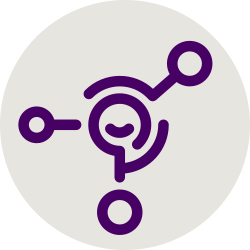This idea revolves around some important ‘Marketing’ aspects very relevant to this movement. And it relates to ideation for a FSDL Ecosystem Alliance and proposal by @CSDUMMI for Organizing Software Guilds.
First I’ll copy my commet from ForgeFed matrix channel, as introduction:
I am quite sure that both Github and Gitlab are modeling their products going from business domains. They don’t have the concept of a “forge”, which is a term mostly only used in FOSS circles. I analysed their positioning a bit on the forgefriends forum.
Now this is interesting more from a marketing perspective as well. Many people haven’t heard of the term “forge”. I learned it myself when I found the ForgeFed project. But we can make The Forge be the proud alternative to proprietary software development platforms. But the “forge” itself denotes an application. From the perspective of business modeling / domain driven design the top-level domain can be said to be “Forging Software”. It encompasses the entirety of our craft. It deals with craftsmanship. And with “forge” and “forging software” not claimed by commercial entitities we can make it terminology that is truly owned by the FOSS community: Forging software is about crafting free software projects.
This mission of positioning, branding The Forge a central theme, a key concept, can fall to the Forgers Ecosystem Alliance, and get their future home at forg.es website.
The Objective
Bring the forge federation efforts to their full potential and grab all the opportunities that arise along the way. With the ultimate goal to:
Democratize software development and create a level playing field where free software can thrive.
The Problem
Reaching the objective brings us in direct opposition to Big Tech players who have the exact opposite objective, namely to centralize software development on their platforms, create lock-in and dependencies in order to maximize their profit margins.
As soon as a Forgers Guild gains enough relevance to be noticed by these giant players, they will throw their full weight to it to destroy it, using any unfair strategy from their playbook.
Only a very strong Guild can hope to withstand that onslaught and come out victorious.
The Opportunity
The idea posed in this topic relates to positioning to be as strong as possible to face the competition with Big Tech. Our commercial proprietary rivals have product portfolio’s and vendor ecosystems scoped to cover the entirety of software development activities.
They don’t deal in the notion and concept of “Code Forges”. The terminology of a ‘code forge’ is invented by and still strictly tied to the free software movement.
 → Now THAT is an opportunity!
→ Now THAT is an opportunity!
We have a concept that we can truly make our own. We can expand its meaning and reach, popularize it for our cause, and weaponize it against our rivals. The idea of a ‘code forge’ is limited, it is just a start. Code forges are apps. Nice. But it hints at something much more. Way more powerful: a philosophy!
The Free Software Community involves itself with FORGING Free Software.
The philosophy entails elaborating what “forging software” means:
- Honoring the Four Freedoms
- Propagating Free Culture
- Strengthening the Commons
- Sustainable Development
- Unifying, united in diversity
With the tools that are to our disposal:
- Social Coding principles and practices
- Social Coding Movement and practitioners
- Leveraging the Fediverse → Social Networking Reimagined, Towards the Peopleverse
The Proposal
Elaborating what “forging software” philosophy means is already the purpose of Social Coding Movement. This idea relates to the Marketing, Branding, PR, Campaigning, Advocacy, Evangelizing, and above all strategic Positioning of our movement.
Now some of these words trigger automatic revulsion and strong reactions in FOSS afficionados (“Did I hear you say Marketing? Get off my lawn!”). By all means use other words, but the activities are the same and must be done. These too are part of the FSDL. Not doing them - what often happens in FOSS projects - decreases chances for lasting success.
Here is another aspect of Social Coding… the Inclusion. While developers like to code, other people are happy to involve themselves with these aspects, and are just as important to the Movement.
Proposal: Evangelizing “forging software” is an overarching strategy of The Forgers Guild.
